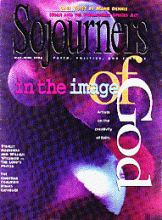For political writers who see our work as a necessary tool in the struggle for social change, faith is essential; it determines and shapes commitment as well as vision. To speak out against injustice, acts of racism, and tendencies toward sexism requires a belief in the potential of the human spirit.
Many times political writing is part of what we might call the art of resistance. It condemns conditions or situations that attempt to oppress the souls of people. It engages the human spirit and speaks out against silence.
Our challenge as artists is to restore faith to our communities. First we must accept the importance of art in our lives. I've been fortunate during my life to know a considerable number of writers-some well established, others struggling to receive wider recognition. Many have conveyed to me their desire to make some money from their creativity: They sought big book contracts, a bestseller, television interviews, and movie deals. They wanted a new home and car.
When writers begin to view creativity as a process by which one acquires primarily material rewards, the spiritual aspect (or reason) for being an artist is lost, overshadowed. A writer, even before placing words on a page, enters into a dialogue with what can be defined as an inner voice. This voice is what links the writer to the divine. Even if the writer is not a religious person, he or she can testify to the magical, and often mystical, feeling associated with writing a poem or story. The act of beginning with a word and breathing life into it is often reason for celebration.
WRITING IS NOT always easy. At times the beginnings of poems, for example, are deeply rooted in one's fears or buried under levels of pain and grief. The process of writing therefore becomes one of healing. This requires strength and faith along with personal transformation.
Read the Full Article

